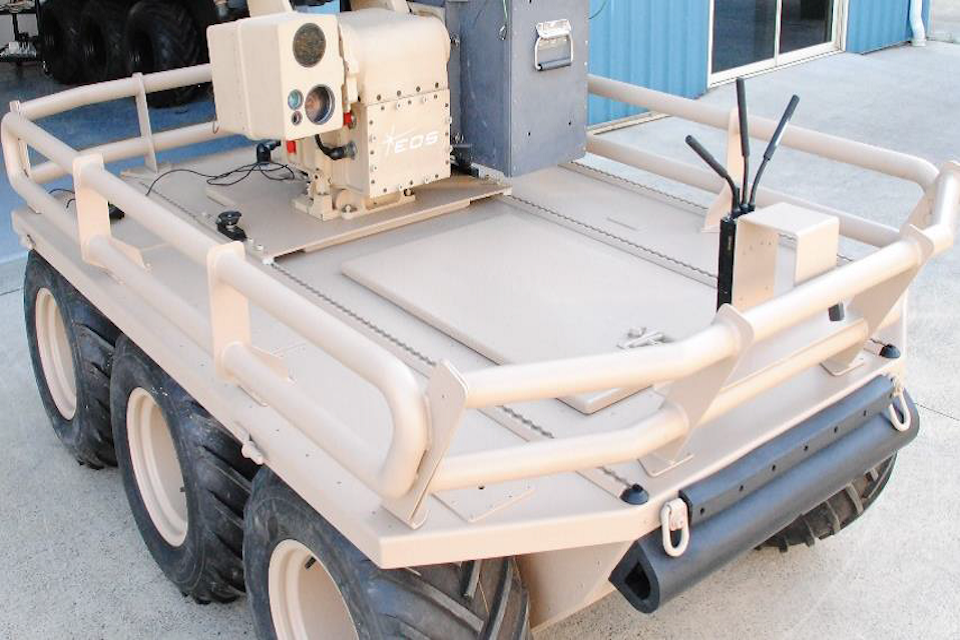The British Army will secure a foothold in the future of warfare later this year with the launch of its four-week Autonomous Warrior exercise dedicated to testing the effectiveness of self-operated vehicles to supply frontline soldiers on the battlefield

Autonomous Warrior
Warfare as we know it could be redefined as the British Army prepares to launch an “Autonomous Warrior” experiment that will use robots in combat zones.
In the four-week exercise, starting on 12 November, British soldiers will test the effectiveness of a range of prototype unmanned aerial and ground cargo vehicles that feature robotic and autonomous systems (RAS) on the battlefield.
The main area it will evaluate is how well these prototypes perform in the extremely dangerous “last mile” – the final approach to the combat zone that food, fuel, and ammunition must be transported through in order to keep troops alive.
Defence Minister Mark Lancaster said: “Our Armed Forces continue to push the limits of innovative warfare to ensure that we stay ahead of any adversaries or threats faced on the battlefield.
“Autonomous Warrior sets an ambitious vision for Army operations in the 21st Century as we integrate drones, unmanned vehicles and personnel into a world-class force for decades to come.”
Autonomous Warrior will make Armed Forces combat-ready for tomorrow
The exercise is a result of a culmination between the British Army, Royal Navy, Royal Air Force, US Army, MOD, Dstl (Defence Science and Technology Laboratory), and about 50 industry participants.
In addition to testing the efficacy of autonomous vehicles during the last mile, Autonomous Warrior will work to develop surveillance capabilities with a view to improving long-range and precision targeting by soldiers.
Costs for the test will be covered by the £800m Defence Innovation Fund, which supports new ideas targeted at transforming both defence and British industry.
General Mark Carleton-Smith, the new chief of the general staff, unveiled the technology during his first address in his new role at the RUSI Land Warfare conference today (20 June).
He stressed the need for British forces to collaborate with their allies on the battlefield and in the virtual world in order to be “combat-ready today and prepared for tomorrow”.
“We need a more proactive, threat-based approach to our capability planning, including placing some big bets on those technologies that we judge may offer exponential advantage,” he said.
“Because, given the pace of the race, to fall behind today is to cede an almost unquantifiable advantage from which it might be impossible to recover.”
Autonomous Warrior is the successor to the 2016 ‘Unmanned Warrior’ exercise, during which the Royal Navy tested self-operated systems for water-based surveillance.


